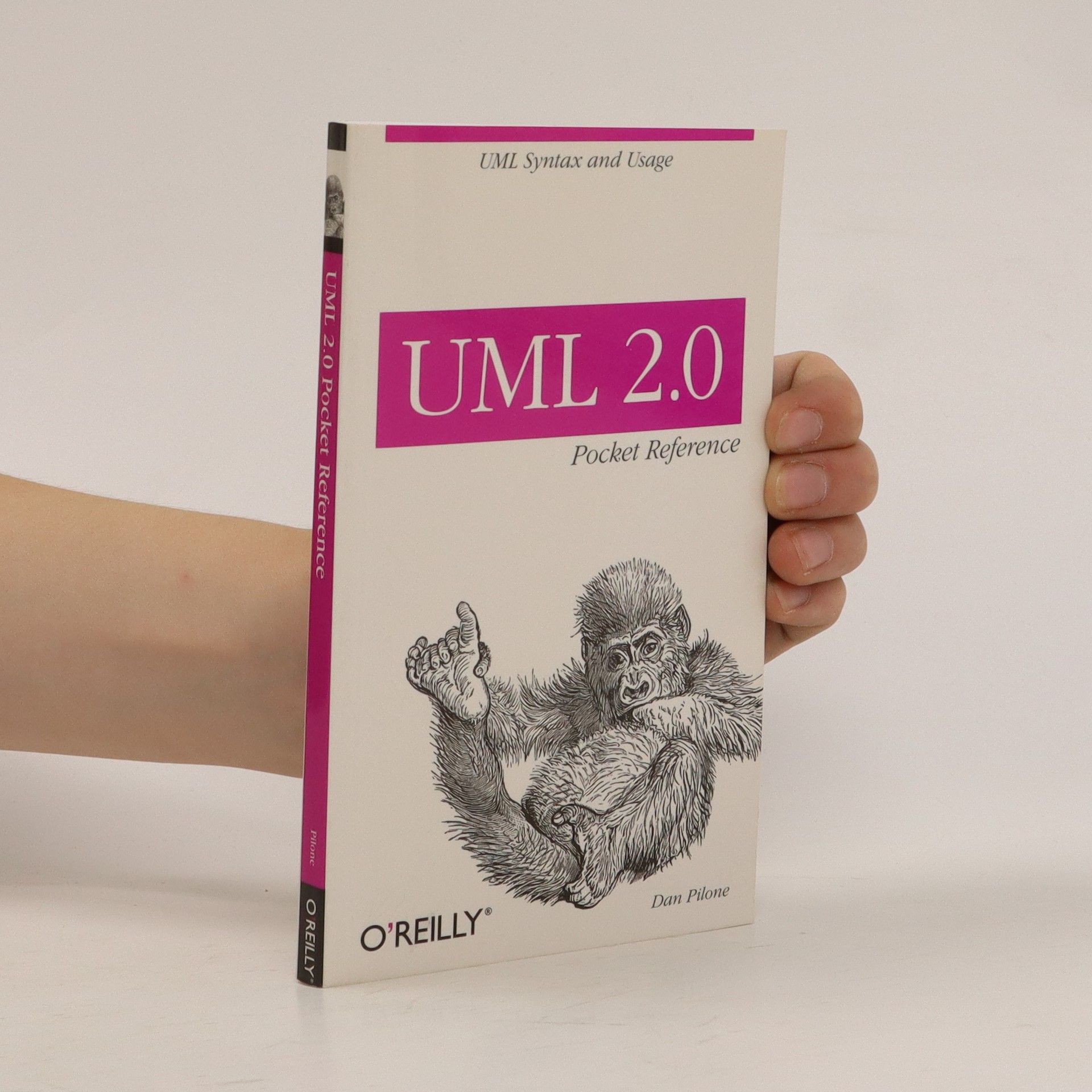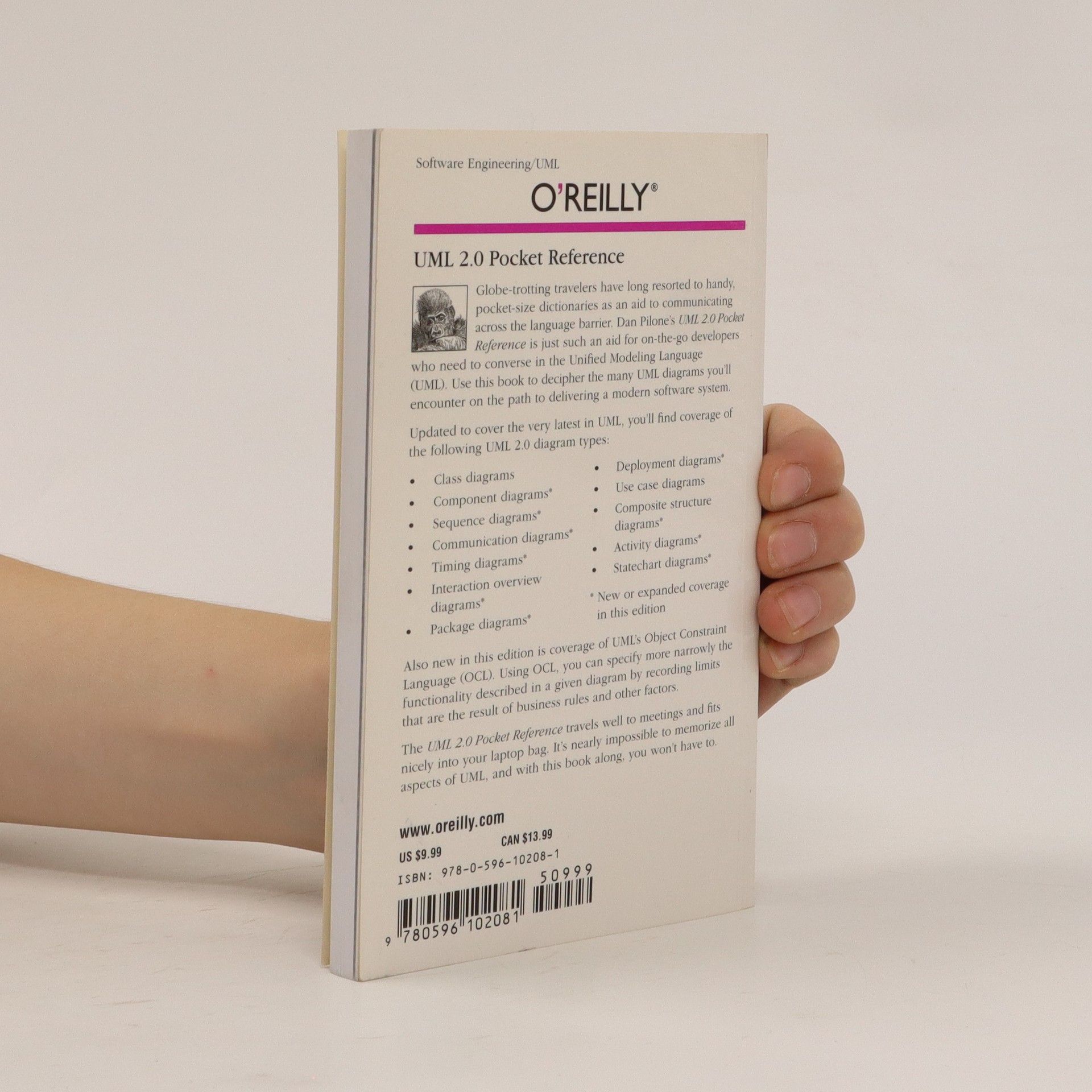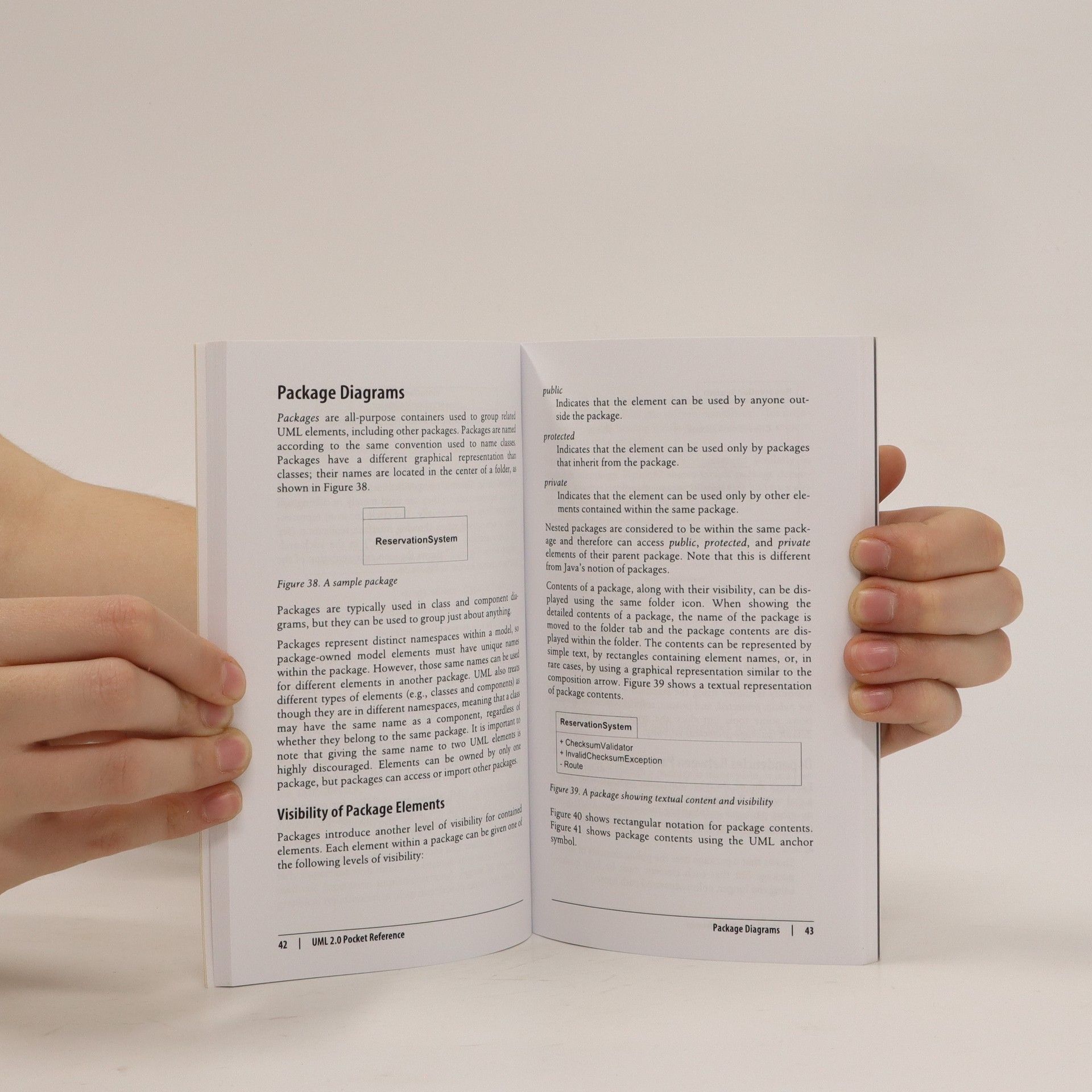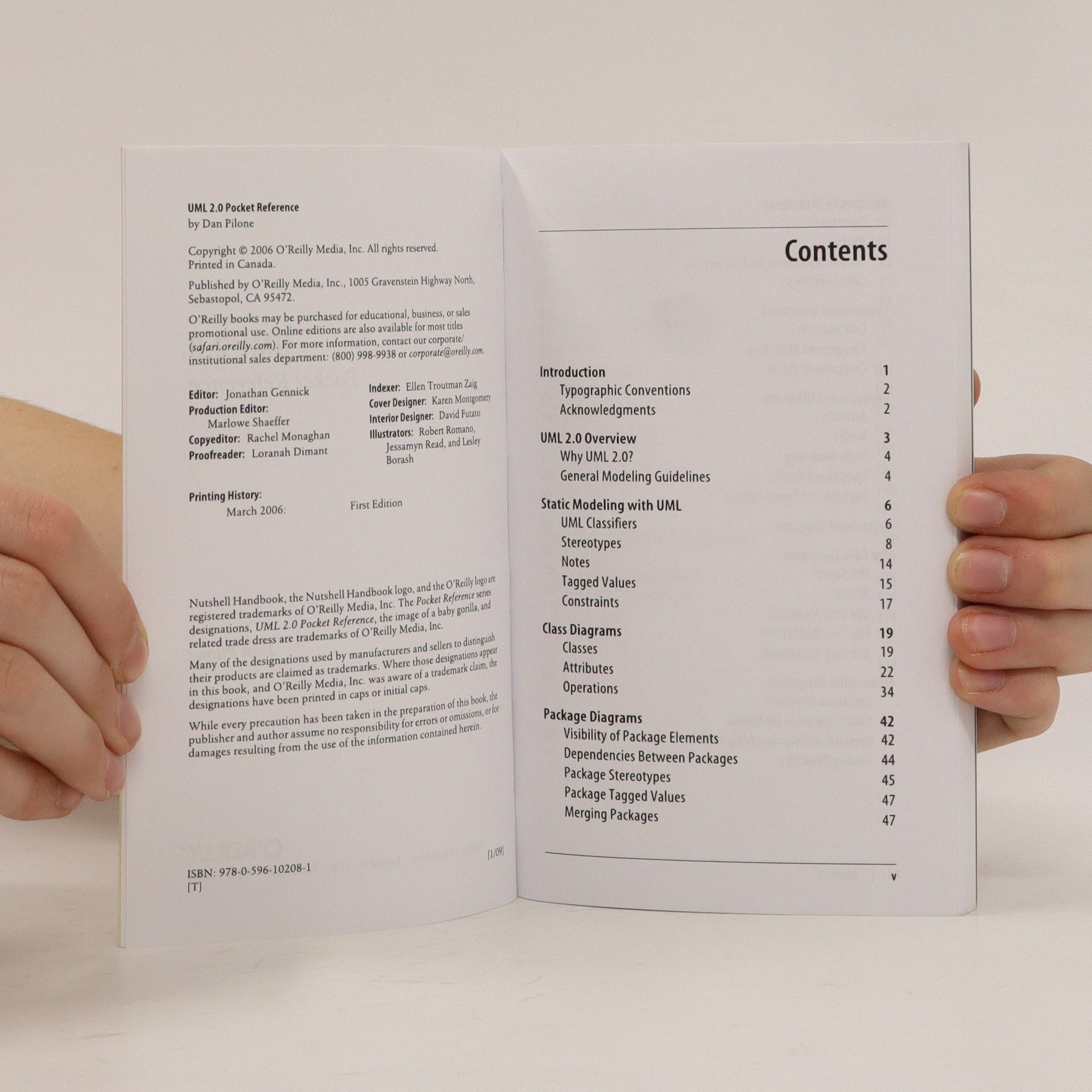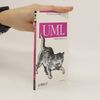UML 2.0 Pocket Reference
Autoren
Parameter
Kategorien
Mehr zum Buch
The Unified Modeling Language (UML) is one of the most important languages for anyone in the software industry to know. The UML is a visual language enabling architects, designers, and developers to communicate about design. Seemingly simple on the surface, the UML is a rich and expressive language, with many visual syntactical elements. It's next to impossible to memorize all aspects of the UML. Just as a writer might require a dictionary to work with the spoken word, so too do UML practitioners require a dictionary of sorts. In this book, you'll find information on UML usage, and also on the symbols, line-endings, and syntax used for the following diagram types: Class diagrams Component diagrams Behavioral diagrams Sequence diagrams Statechart diagrams Object diagrams Deployment diagrams Use case diagrams Collaboration diagrams Activity diagrams Let this book be your UML dictionary. It's clear, concise, and small. Keep this book at hand, and never again be stymied by an unfamiliar UML symbol, a line-ending you don't recognize, or the use of an unfamiliar diagram type. O'Reilly's Pocket References have become a favorite among programmers everywhere. By providing a wealth of important details in a concise, well-organized format, these handy books deliver just what you need to complete the task at hand. When you need to get to a solution quickly, the new UML Pocket Reference is the book you'll want to have.
Publikation
Buchkauf
UML 2.0 Pocket Reference, Dan Pilone
- Sprache
- Erscheinungsdatum
- 2006
Lieferung
Zahlungsmethoden
Feedback senden
- Titel
- UML 2.0 Pocket Reference
- Sprache
- Englisch
- Autor*innen
- Dan Pilone
- Verlag
- O'Reilly Media, Inc.
- Erscheinungsdatum
- 2006
- Einband
- Paperback
- ISBN10
- 0596102089
- ISBN13
- 9780596102081
- Kategorie
- Informatik & Programmierung
- Beschreibung
- The Unified Modeling Language (UML) is one of the most important languages for anyone in the software industry to know. The UML is a visual language enabling architects, designers, and developers to communicate about design. Seemingly simple on the surface, the UML is a rich and expressive language, with many visual syntactical elements. It's next to impossible to memorize all aspects of the UML. Just as a writer might require a dictionary to work with the spoken word, so too do UML practitioners require a dictionary of sorts. In this book, you'll find information on UML usage, and also on the symbols, line-endings, and syntax used for the following diagram types: Class diagrams Component diagrams Behavioral diagrams Sequence diagrams Statechart diagrams Object diagrams Deployment diagrams Use case diagrams Collaboration diagrams Activity diagrams Let this book be your UML dictionary. It's clear, concise, and small. Keep this book at hand, and never again be stymied by an unfamiliar UML symbol, a line-ending you don't recognize, or the use of an unfamiliar diagram type. O'Reilly's Pocket References have become a favorite among programmers everywhere. By providing a wealth of important details in a concise, well-organized format, these handy books deliver just what you need to complete the task at hand. When you need to get to a solution quickly, the new UML Pocket Reference is the book you'll want to have.
